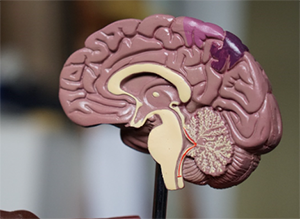Brain Injury Attorney in Boca Raton, Florida
 Brain injuries are some of the most devastating injuries that accident victims can suffer. The brain is the command center for the entire body. It sends signals to limbs and processes signals that are sent back. Parts of the brain even regulate breathing, digestion, and heart rate—things we never consciously think about.
Brain injuries are some of the most devastating injuries that accident victims can suffer. The brain is the command center for the entire body. It sends signals to limbs and processes signals that are sent back. Parts of the brain even regulate breathing, digestion, and heart rate—things we never consciously think about.
If you suffered a brain injury, your life could get tossed upside down. Normal activities like dressing and bathing become impossible. You might need to take lower-paying work or possibly never work again. Other brain injury victims will suffer dramatic mood swings and even complete personality changes.
In addition to being disruptive, brain injuries are typically very expensive to treat. However, you might qualify for compensation if you were injured by someone's negligence. Get in touch with Goldblatt Law by calling (561) 868-2000 or contacting us online today to determine whether you have a case. We are an experienced law firm dedicated to victims' rights, and we will do everything possible to obtain a favorable outcome for you.
Information Center
What Are The Major Causes Of Traumatic Brain Injuries?
What Are The Major Types Of Brain Injuries?
What Are The Most Common Symptoms Of A Brain Injury?
Do Children Have Different Symptoms?
How Do You Treat Brain Injuries In Florida?
How Much Does It Cost To Treat A Brain Injury?
Can I Sue For A Brain Injury?
What Compensation Can I Receive For A Florida Brain Injury?
Can I Receive Punitive Damages For An Accident?
Can Affected Family Members Sue For My Florida Brain Injury?
What Determines My Amount Of Compensation?
Should I Accept A Settlement For My Florida Brain Injury?
Can My Child Sue In Florida For A Brain Injury?
Contact Us Today
What Are the Major Causes Of Traumatic Brain Injuries?
Some of the most common causes include:
Motor vehicle accidents. You might strike your head on the steering wheel or dash, or your brain can be injured when your head whips back and forth.
Pedestrian accidents. Pedestrians suffer the full brunt of any collision and can crack their heads on the pavement.
Motorcycle collisions. Motorcyclists are uniquely vulnerable, even if they are wearing a helmet and following all rules of the road. Any collision can cause devastating brain injuries.
Falls. A person who falls can bump their head or suffer whiplash. Falls from great heights also tend to cause more serious brain injuries.
Violence. You could be attacked and suffer a direct blow to the head or get pushed over and strike your head on the ground. Getting shot in the head can cause direct trauma to the brain.
Sports injuries. Some head injuries are common in contact sports. For example, football and soccer often cause collisions.
Different age groups are at greater risk of brain injury than others. But anyone could suffer brain damage in a collision or other accident, which is not their fault.
What Are the Major Types Of Brain Injuries?
Brain injuries come in different shapes and sizes. Doctors classify them in the following manner:
Traumatic brain injury (TBI). A person typically suffers a TBI when they sustain a blow to the head or body. Any traumatic movement can disrupt how the brain normally functions. A concussion is an example of a traumatic brain injury. More serious TBIs have longer lasting or more severe symptoms.
Penetrating brain injury. This is a type of TBI where the skull is penetrated or cracked. A bullet to the brain is an example of an open injury. But falling and cracking your skull might also qualify. An open injury is dangerous for many reasons, one of which is an increased risk of infection.
Closed brain injury. If the skull is intact, then you have suffered a closed brain injury. These can still be very serious. Brain matter can move around, tear, and bleed even if the skull is in one piece. Closed brain injuries are sometimes hard to diagnose because a patient doesn't see any external bleeding or other obvious signs.
Anoxic brain injury. The brain needs oxygen to function. After about 5 minutes of oxygen deprivation, brain cells can begin to die. Anoxic brain injuries stem from a lack of adequate oxygen. Someone who suffers a near-drowning incident could suffer from an anoxic brain injury, as could someone who has a heavy object landing on their neck.
Instead of trying to self-diagnose whether you have a brain injury, go to the hospital. A doctor can order tests and perform an assessment.
What Are the Most Common Symptoms of a Brain Injury?
Brain injuries are tough to diagnose because they are often invisible. Nevertheless, there are some common symptoms you should be aware of:
Coma
Memory loss
Confusion
Convulsions
Dizziness
Muscle spasms
Trouble speaking
Loss of balance or coordination
Headaches
Blurred vision
Numbness in hands or feet
Sensitivity to light or sound
Mood swings
Disrupted sleep
Of course, some brain injuries have different symptoms than others. If you have a sudden, blinding headache, for example, then you could suffer a hemorrhage in the brain and should seek emergency medical treatment.
Do Children Have Different Symptoms?
Not really. Of course, with children, you might not know anything is wrong if your child is too young to speak. You can spot a coma and convulsions, but other symptoms are invisible.
There is a common assumption children bounce back from brain injuries much faster than adults, but that's not really true. In fact, a child's brain injury might impact development and create lifelong problems.
How Do You Treat Brain Injuries in Florida?
Treatment is very difficult. Of course, it depends on the injury. If you cracked your skull, you might have emergency surgery to close any wound. Likewise, if you are experiencing bleeding inside your brain, surgery can relieve the pressure. These surgeries are often lifesaving.
A TBI can often improve if you limit stimulation or stress, rest, and get enough sleep. Over time, you can slowly reintroduce exercise and challenging mental tasks. The road to recovery is long, and some moderate or severe TBIs can leave you with permanent injuries.
You might benefit from rehabilitation to try and recover as much functioning as possible:
Physical therapy. You re-learn how to move your body, walk again, grab objects, and improve balance.
Speech therapy. If your injury impaired your speech, you can re-learn how to talk or communicate in other ways.
Behavioral therapy. You might benefit from therapy to treat psychological disorders caused by a TBI.
Occupational therapy. Permanent injuries can prevent you from taking care of yourself. Occupational therapy seeks to teach patients new ways of cooking, cleaning, bathing and getting dressed.
Some symptoms improve with medication. Sleeping pills can stabilize your sleep patterns, and antidepressants or anti-anxiety medication can improve your mood.
How Much Does It Cost to Treat a Brain Injury?
The amount will depend on certain factors, such as your age and the severity of the injury. However, a recent estimate is between $85,000 and $3 million. And that's just the cost of medical treatment. Those with brain injuries might be unable to work, which means they lose out on income.
Can I Sue for a Brain Injury?
Yes—if someone is at fault for your injury. Lawsuits involving brain injuries include, but are not limited to, the following types:
Car accidents. If you suffered a brain injury in a car accident, you could sue if the motorist violated the law, drove recklessly, or made a careless error.
Slip and falls. You might have slipped and fallen in a store or on someone's property. If the property owner didn't use reasonable care, you could sue.
Pool and hot tub accidents. Someone who owns a pool or hot tub should use reasonable care to limit access and keep the area safe. A homeowner, for example, might have failed to have fencing to keep out curious children.
Negligent security. If you were violently attacked, you might sue the business where the attack happened. Businesses must have reasonable security, depending on the likelihood of crime in the area. When security is lacking, the property owner can be on the hook.
School accidents. Schools must provide a reasonably safe environment for students and adults. If your child was hurt on a dangerous playground or during a sporting event, you might have grounds to sue.
Defective products. A defective product could explode in your face or fail to work properly. For example, a defective highchair could collapse and send your child tumbling to the floor. If there are defects with the product design, manufacture, or warning labels, then you might sue.
This is only a partial list; there may be other entities you can sue. Your attorney should fully analyze any case to determine all potentially liable parties. At our firm, we do just that—and increase the odds of full financial compensation.
What Compensation Can I Receive for a Florida Brain Injury?
Florida law allows you to seek monetary damages for certain medical expenses, such as:
Surgical costs and hospital overnights
Diagnostic treatment
Ambulance transportation
Doctor appointments
Specialist visits
Crutches, wheelchairs, and other assistive devices
At-home assistance
Rehabilitation and other therapy
Medication
You might also qualify for compensation for lost income, including lost income capacity, if you have a permanent injury. Someone with a serious brain injury might never return to work. Or all they can do is light duty.
Other damages compensate for property damage or other consequential damages that flow from an accident. For example, if you were involved in a car accident, you'll need repairs and possibly a rental vehicle.
Brain injuries also cause pain, suffering, emotional distress, and other hard-to-define losses. This suffering is very real, and you deserve compensation for it.
Can I Receive Punitive Damages for an Accident?
Possibly. Florida law allows you to seek punitive damages in brain injury cases when the defendant's conduct was intentional or grossly negligent. "Gross negligence" means being so careless your conduct exhibits little regard for other people's safety.
You might seek punitive damages for:
Violent attacks
Drunk driving accidents
Car accidents caused by drag racing or excessive speed
You could also qualify if the defendant has been sued multiple times for the same type of accident. For example, several children might have drowned in a hotel pool, but the hotel never made changes to improve safety. If your child suffers a near-drowning accident, the hotel has probably been grossly negligent.
Can Affected Family Members Sue for My Florida Brain Injury?
It's possible. Florida recognizes something called a "loss of consortium" claim. Spouses most commonly bring them seeking compensation for negative changes to the marriage. For example, if you suffered permanent paralysis and mood swings, your spouse might request compensation for the loss of:
Affection
Companionship
Intimacy
Household services
You must have been married at the time of the accident to qualify, and success depends on whether the defendant was liable for the accident.
In some situations, children or parents can bring a loss of consortium claim. We recommend meeting with an attorney to review whether this claim is possible.
What Determines My Amount of Compensation?
The amount of compensation you receive depends on several factors:
Whether you were partially at fault. If you were, your compensation is reduced by your portion of fault.
How much insurance coverage the defendant has. If you're hit by an uninsured driver, you'll only receive your PIP insurance, which for most people is only $10,000, plus potentially uninsured motorist coverage that you might maintain.
The extent of your damages. If you can't work at all, you'll qualify for more than someone who can return to light duty.
The severity of your pain and injuries. More dramatic injuries tend to result in larger settlements or jury verdicts.
To maximize compensation, you should fully document your injuries, including your pain and suffering. Keep a journal where you record how your brain injuries have impacted your life. A spouse or other family member in the household can record this information if you are disabled.
Also, hold onto all medical bills, prescription drug receipts, property repair bills, and other proof of economic loss.
Should I Accept a Settlement for My Florida Brain Injury?
It depends on the fairness of the settlement offer. An attorney can review the evidence and offer advice. Ultimately, however, a client decides whether to settle.
If the settlement offer is too low, we can continue to negotiate. Eventually, we might need to file a lawsuit. There are risks that come with suing in court, such as losing your case or being awarded less by the jury than you were hoping for. Your attorney should discuss these risks with you, so you make an informed choice.
Can My Child Sue in Florida for a Brain Injury?
 If your child suffered a brain injury, you could seek a settlement. Children under 18 can't sign legally binding contracts, however, so Florida has created a special process. A judge must sign off on most settlements involving children. The money is kept in a trust for your child to get when he or she becomes an adult. If you, as parents, paid medical bills, you can be reimbursed, but the settlement belongs to your child—not you, the parent, or the guardian.
If your child suffered a brain injury, you could seek a settlement. Children under 18 can't sign legally binding contracts, however, so Florida has created a special process. A judge must sign off on most settlements involving children. The money is kept in a trust for your child to get when he or she becomes an adult. If you, as parents, paid medical bills, you can be reimbursed, but the settlement belongs to your child—not you, the parent, or the guardian.
The law regarding settlements for minors is complex, and there are certain exceptions. Goldblatt Law has negotiated many settlements for children, and we can discuss this in more depth.
Contact Us Today
Brain injuries require courage and commitment, and our firm has stood side by side with accident victims and their families for years. If you contact Goldblatt Law, we can describe your legal rights to seek compensation following a brain injury.
Our legal services allow victims and their family members to focus on what is most important—getting better. We will review evidence, analyze the law, and identify at-fault parties. Where appropriate, we can negotiate a settlement or even file a lawsuit in court before the deadline. And we never charge an upfront fee to represent you.
To learn more about how we can help you bring a brain injury lawsuit to get justice and compensation for your traumatic brain injuries, call (561) 868-2000 or contact us online today. Our consultations are free.
